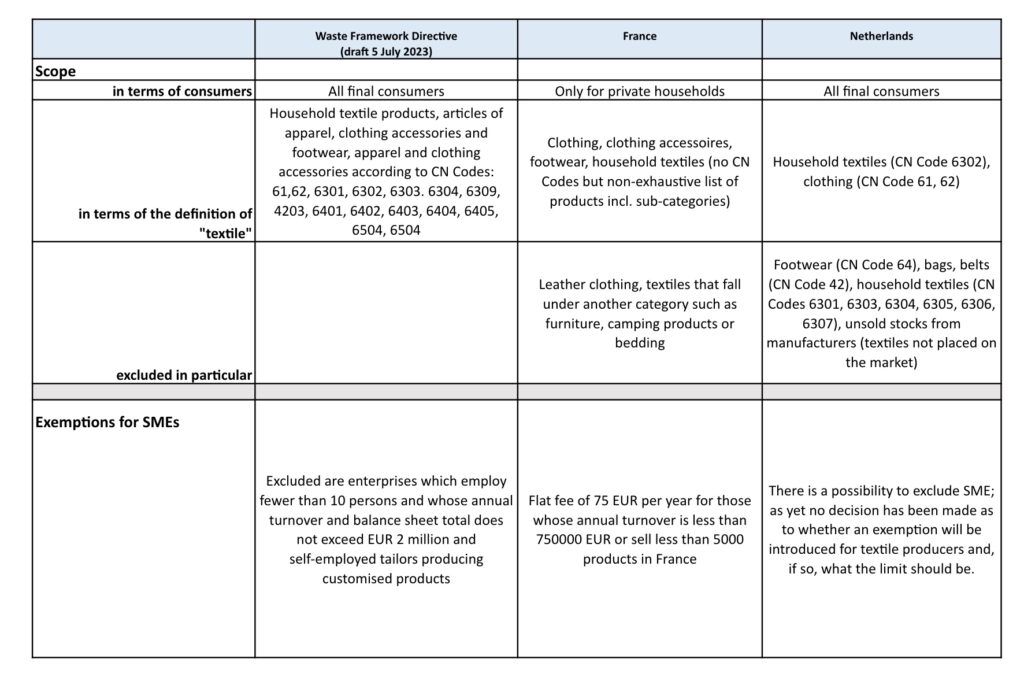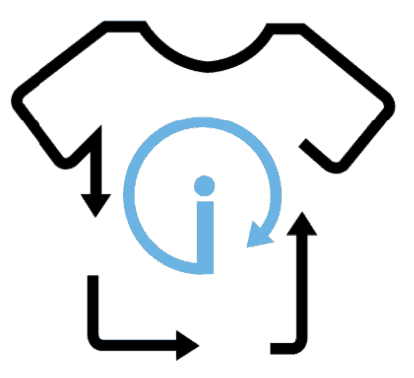Extended Producer Responsibility
EPR for Textiles
So far, only in France, the Netherlands as well as Bulgaria and Hungary exist a legal framework on EPR for textiles. Other countries like Sweden, Italy, Spain or Germany have already started to look at EPR for textiles. Nevertheless, with the new revision of the Waste Framework Directive, a mandatory EPR system for textiles shall be implemented in all Member States.
Even if the internal EU market for selling textiles is similar the current collecting infrastructure differs a lot within the Member States. The differences refer in particular to the collecting actors, collecting rates, quality and content of textile waste collected. Against this background, it can be expected that the future waste management of textile waste will be organized in the Member States differently.
Future Roles and Responsibilities within an EPR Framework
This waste management concept is a suitable instrument to influence the environmental impact of products. Against this background, the producer of textiles will become a prominent role in this future EPR system, starting with the design of textiles till the management of the end-of life stage.
Producer- am I affected?
In general, those ones (any manufacturer, importer or distributer) who makes textile products available on the market for the first time are the “obliged producer or importer” in an EPR system. Sometime, the definition refers only to products manufactured for private households and there are exemptions from being obliged.
But which textiles are in the scope?

Social enterprises – what is my future role?
Today, social enterprises are one of the pillars in the used textile sector. Besides collecting used textiles, social enterprises take care about local reuse within a social economy. The revision of the Waste Framework Directive underlines the importance of social enterprises. However, so far there are uncertainties how this rule will be implemented into national legislation.
Collectors, sorters, recyclers – which requirements to be met?
The other main pillar within the used textile branch is the private sector. So far, the business model differs from country to country, and it is far from clear how the existing infrastructure will be integrated into the future EPR system. Besides this, other new regulation with regards to waste shipment and end of waste criteria for textile waste will influence the daily business. Additionally, due to the increase of textile waste in Europe there is a big lack of sorting and recycling capacities. To fill the gap, the private sector needs investment security which can be supported by reuse and recycling targets and targets on recycled content in new textiles.
Municipalities / public disposal providers – how to be involved:
Municipalities or public disposal providers are responsible for handling private household waste. With this in mind, what will be the future role within an EPR framework? There are several options of involvement, however this depends in particular on the legal framework of the future national legislation.

